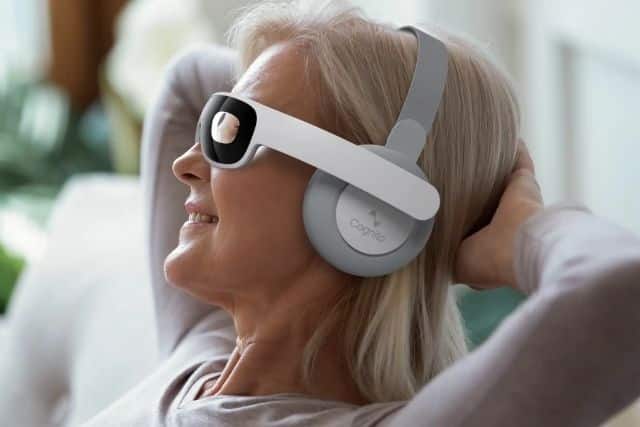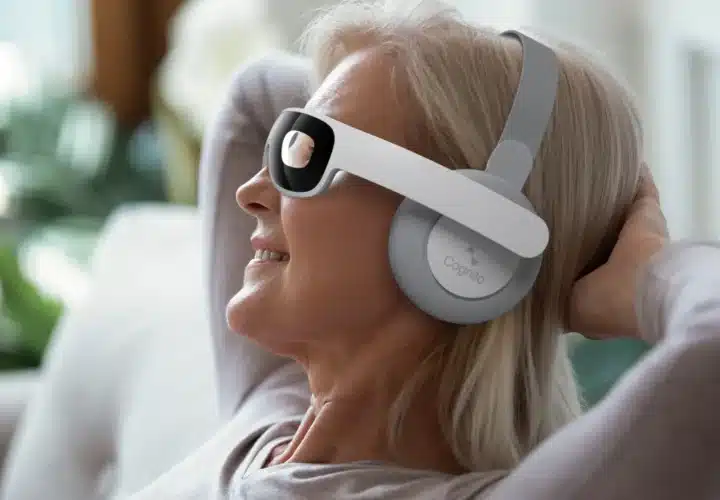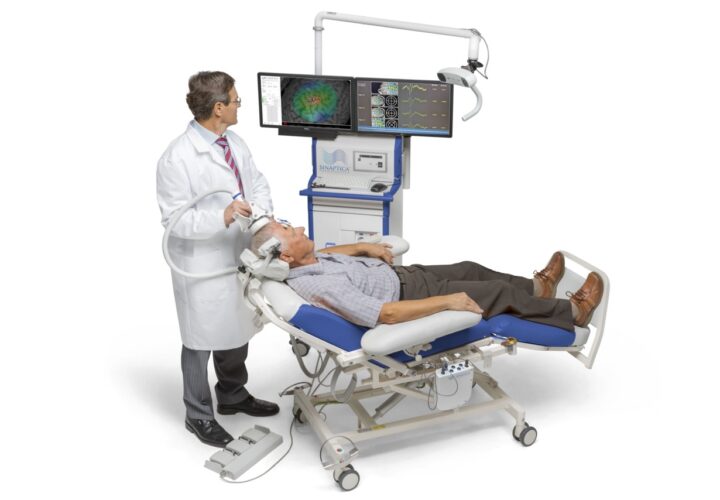Emerging treatments are coming online for Alzheimer's, developed with the goal of clearing harmful plaques and improving brain function without the use of drugs or invasive procedures.
In the brains of people with Alzheimer’s diseases, problematic proteins called beta-amyloid build up and clump together in plaques, harming and eventually killing off brain cells. A new generation of Alzheimer’s drugs is reshaping brain function by targeting this build-up of proteins in neurons. Anti-amyloid treatments, such as Leqembi and Kisunla, stick to these protein plaques, helping the brain clear them out and potentially slowing down disease progression.
Other drugs for Alzheimer’s don’t address the root pathology, but they do help ease the symptoms. Cholinesterase inhibitors, for example, take a more proactive approach to preserve chemical messengers that transmit brain signals. The treatment seeks to boost neurotransmitters such as acetylcholine, which are often low in those suffering from Alzheimer’s disease.
What if there were a way to accomplish both — clearing out this pathology and addressing symptoms — without drugs or invasive implants?
For decades, scientists have examined the use of magnets, electricity, flickering lights, and sounds to determine whether they can rewire brain activity and clear beta-amyloid plaques. Progress, however, has varied: In 2019, an FDA panel nearly unanimously rejected the use of a brain stimulation device by Neuronix called neuroAD, which employed a figure-eight-shaped magnetic coil placed near the scalp to deliver electric pulses to different regions of the brain.
“There may be some value for [transcranial magnetic stimulation] in cognitive therapy, but the current pivotal trial certainly didn’t demonstrate it,” explained David Knopman, a clinical neurologist and voting member of the panel. That, however, could be changing.
Two companies, Cognito and Sinaptica, are currently entering the final stages of clinical trials in development of similar devices.
Cognito Therapeutics’ Spectris AD
Cognito is testing an experimental headset, Spectris AD, that uses flashing lights and sounds, precisely tuned to a frequency of40 Hz.. The technology aims to restore “gamma oscillations” in the brain; an essential rhythm for neuronal communication, or the process by which neurons transmit signals to each other. For context, think of neurons as analogous to synchronized swimmers.Their complex dance works to maintain memory and cognitive function.In Alzheimer’s, the dance becomes disjointed, which can impair brain performance. Spectris AD essentially seeks to help neurons regain their coordination.
In a 76-person Phase 2 trial of participants with mild-to-moderate Alzheimer’s disease, the device showed promising results, slowing functional decline and brain shrinkage over the course of six months. Building on those results, the company is currently running a larger Phase 3 trial with 670 participants. Results are expected in the second half of 2026.
Sinaptica Therapeutics’ brain stimulation
Sinaptica, meanwhile, is developing a treatment using repetitive transcranial magnetic stimulation (rTMS) to treat mild-to-moderate Alzheimer’s disease. The device specifically targets the precuneus region of the brain, triggering neuroplasticity – the brain’s ability to form new connections and strengthen existing ones.
In a Phase 2 trial of 50 participants, the treatment also appeared to slow brain shrinkage and improve brain function, as the company prepares to launch Phase 3 trials later in 2025.
Update 19 February, 2025: The article was updated to reflect new information about Cognito’s Phase 3 trial, updating the total number of participants and when trial readout is expected.





Encouraging for current status. Timetable, Source, Availibity, Cost?
Thank you for being here, John. Cognito is currently recruiting for their ongoing clinical trial for the SPECTRIS AD headset. The device is not yet available for people besides the clinical trial participants, so the cost has not yet been disclosed. You can learn more about the study here: https://www.hopestudyforad.com/ – take care.
This is such promising information to me personally. I am stage one Alzheimer’s disease. I’m doing well on meds and Infusions but I am looking forward to this which is even greater things on the horizon. Thank you Lord !🙏
Hi Ramona, thank you for being here. It’s inspiring to hear that you’re doing well with treatment. If you’re interested in staying updated on new treatments and clinical trials, feel free to sign up to our quarterly Trials Update newsletter here: https://www.beingpatient.com/bp-trials-updates/?utm_source=organic&utm_medium=social . Wishing you continued strength on your journey.
My husband has a VP brain shunt for normal pressure hydrocephalus that is reactive to magnets. He was recently diagnosed with AD based on blood work and cognitive decline. Would he ever be a potential candidate for this therapy?
Hi Susan, thank you for being here. We recommend discussing treatment options with your husband’s healthcare provider, considering the presence of a VP brain shunt. If you’re interested in staying updated on new treatments and clinical trials, feel free to sign up to our quarterly Trials Update newsletter here: https://www.beingpatient.com/bp-trials-updates/?utm_source=organic&utm_medium=social . Wishing you all the best on your journey, and we’re grateful to have you in our community.